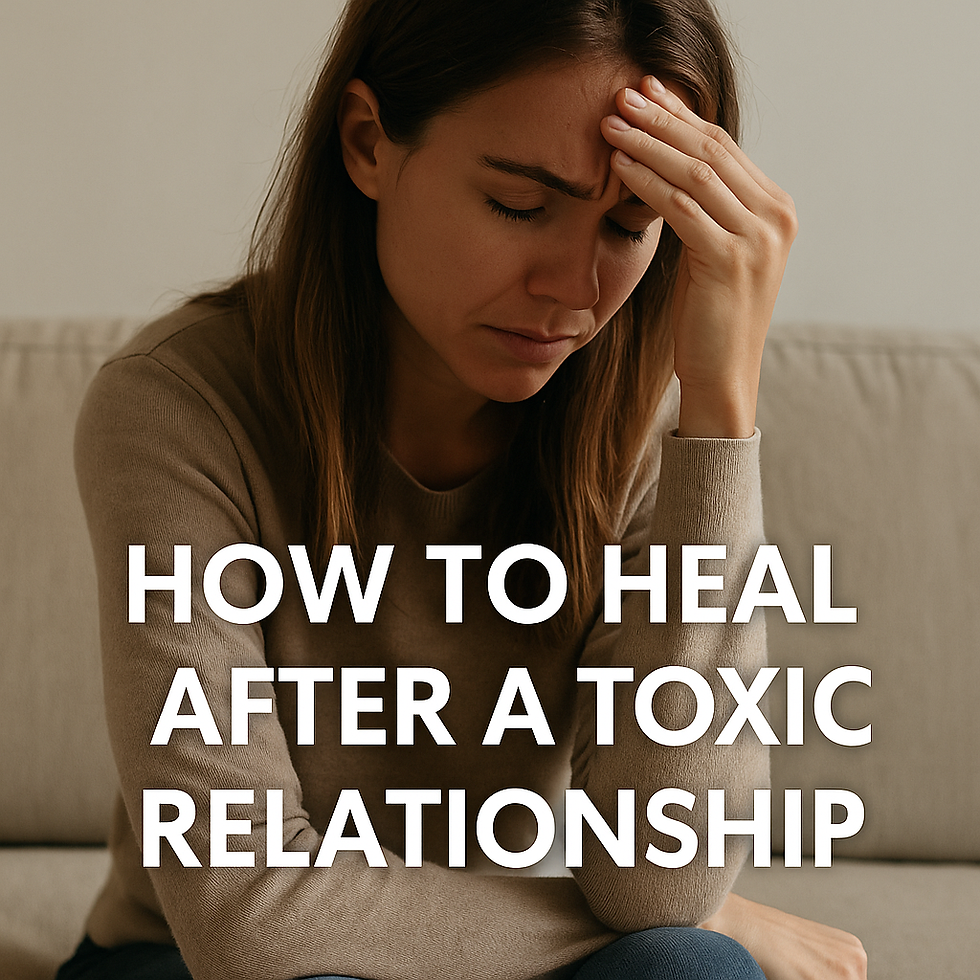Can Online Therapy Really Help with Anxiety? Science Says Yes
- zeespareddeer
- May 15, 2025
- 2 min read
Anxiety can feel like a constant hum in the background of your life—or a tidal wave that hits out of nowhere. And if you’ve ever found yourself wondering if online therapy can actually help you feel better, you’re not alone.
The short answer? Yes. It absolutely can. And science backs it up.
Let’s break down why online therapy is an effective, research-supported tool for managing anxiety—and how it might be exactly what you need.
What Is Anxiety, Really?
Anxiety isn’t just stress. It’s persistent, sometimes overwhelming worry, fear, or unease that can interfere with your daily life. It can show up as:
Racing thoughts
Tightness in the chest
Trouble sleeping
Constant overthinking
Fear of worst-case scenarios
Avoidance of people or tasks
A feeling of dread with no clear reason
Whether you experience general anxiety, social anxiety, panic attacks, or health anxiety—these symptoms are real. And they are treatable.
Why Online Therapy Works for Anxiety
1. It Makes Therapy More Accessible
One of the biggest barriers to mental health care is accessibility. Online therapy removes the need for commuting, taking time off work, or finding childcare. You can log in from your bedroom, office, or even your parked car—wherever you feel safe and grounded.
2. You Can Create a Comfortable Environment
In-person therapy can feel intimidating, especially for those with social or generalized anxiety. Online sessions let you stay in your comfort zone, which can make it easier to open up and stay consistent.
3. You Still Get Evidence-Based Care
Research has shown that online Cognitive Behavioural Therapy (CBT)—one of the most effective treatments for anxiety—is just as effective as in-person CBT.
A 2018 Journal of Anxiety Disorders meta-analysis found that internet-based therapy is highly effective for treating anxiety, and can offer long-lasting improvements. It’s not just a backup plan—it’s a proven method.
4. You’re More Likely to Stick With It
Because it’s easier to schedule and attend online sessions, clients often stay more consistent in their therapy journey. And when it comes to anxiety, consistency is key.
What Online Therapy Can Help You With
Identifying and managing your anxiety triggers
Replacing negative thought patterns with more empowering ones
Learning calming techniques (like breathing exercises and mindfulness)
Creating structure and predictability to reduce anxiety spikes
Building long-term emotional resilience
Real Talk: What It Feels Like
Online therapy can feel strange at first—talking to someone over a screen. But most clients report that within a session or two, the screen disappears, and the connection feels just as powerful as in-person.
If you struggle with making the first move, feel overwhelmed in social situations, or need extra privacy, virtual therapy might even feel safer and more supportive than traditional therapy.
You’re Not Alone
Anxiety is the most common mental health condition in the world—but it’s also one of the most treatable. You don’t have to wait until things get unbearable. Help is available—and it can begin with just one click.
Final Thoughts
Online therapy isn’t second-best. It’s smart, flexible, evidence-backed care designed to meet you exactly where you are—mentally and physically.
So if anxiety has been holding you back, consider this your sign: Yes, online therapy works. Yes, you’re worth it. Yes, you can start today.
Ready to feel better? Book an online therapy session today at Alberta Online Counselling




Comments